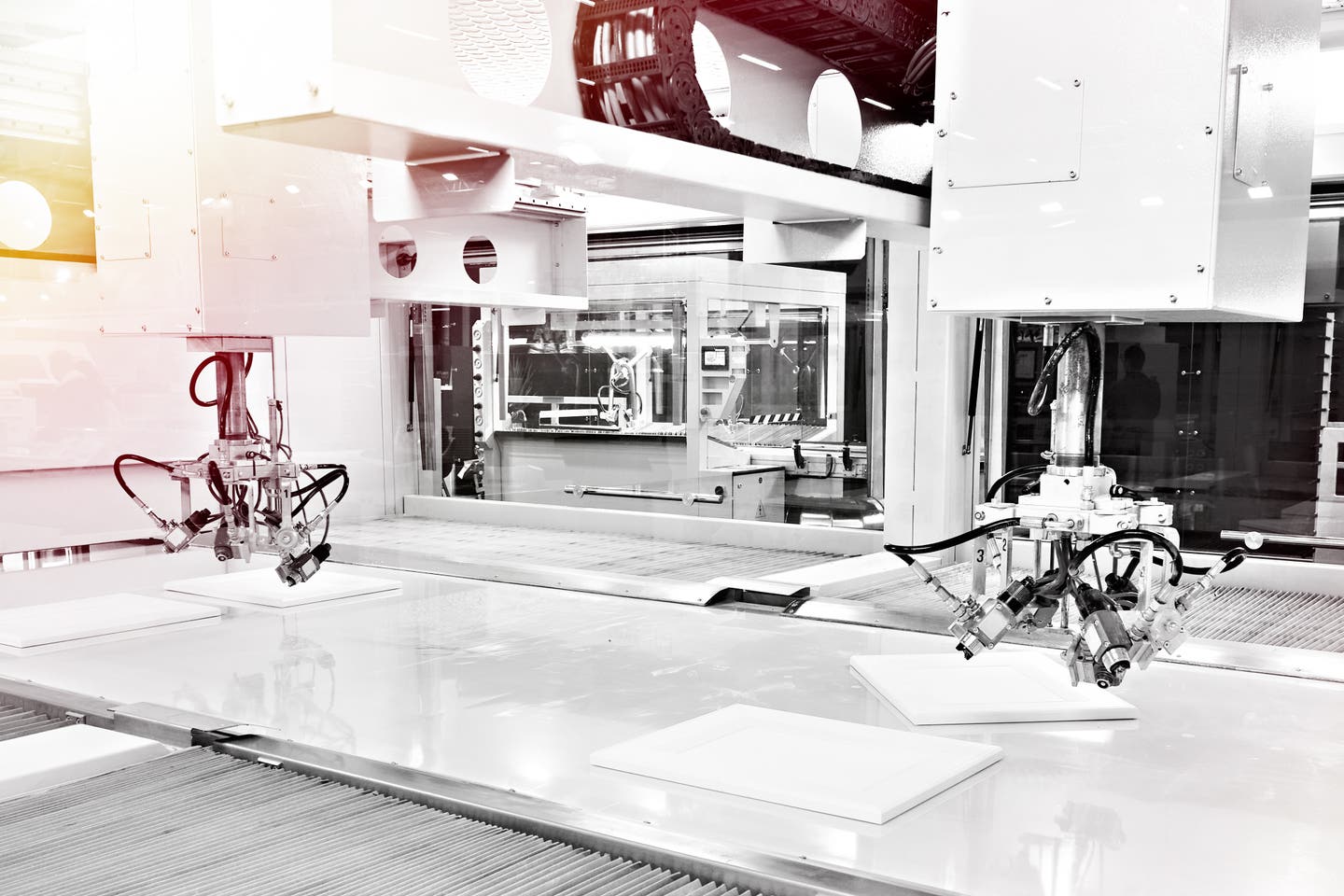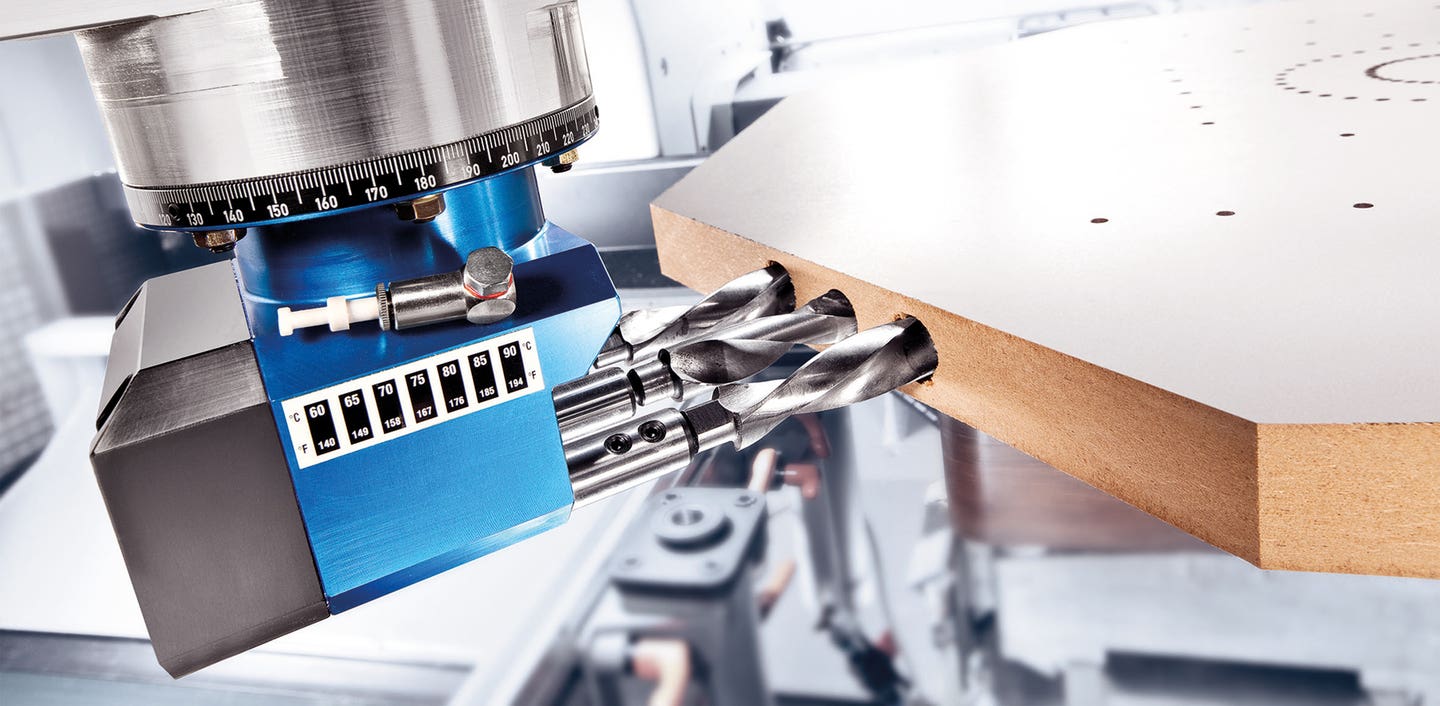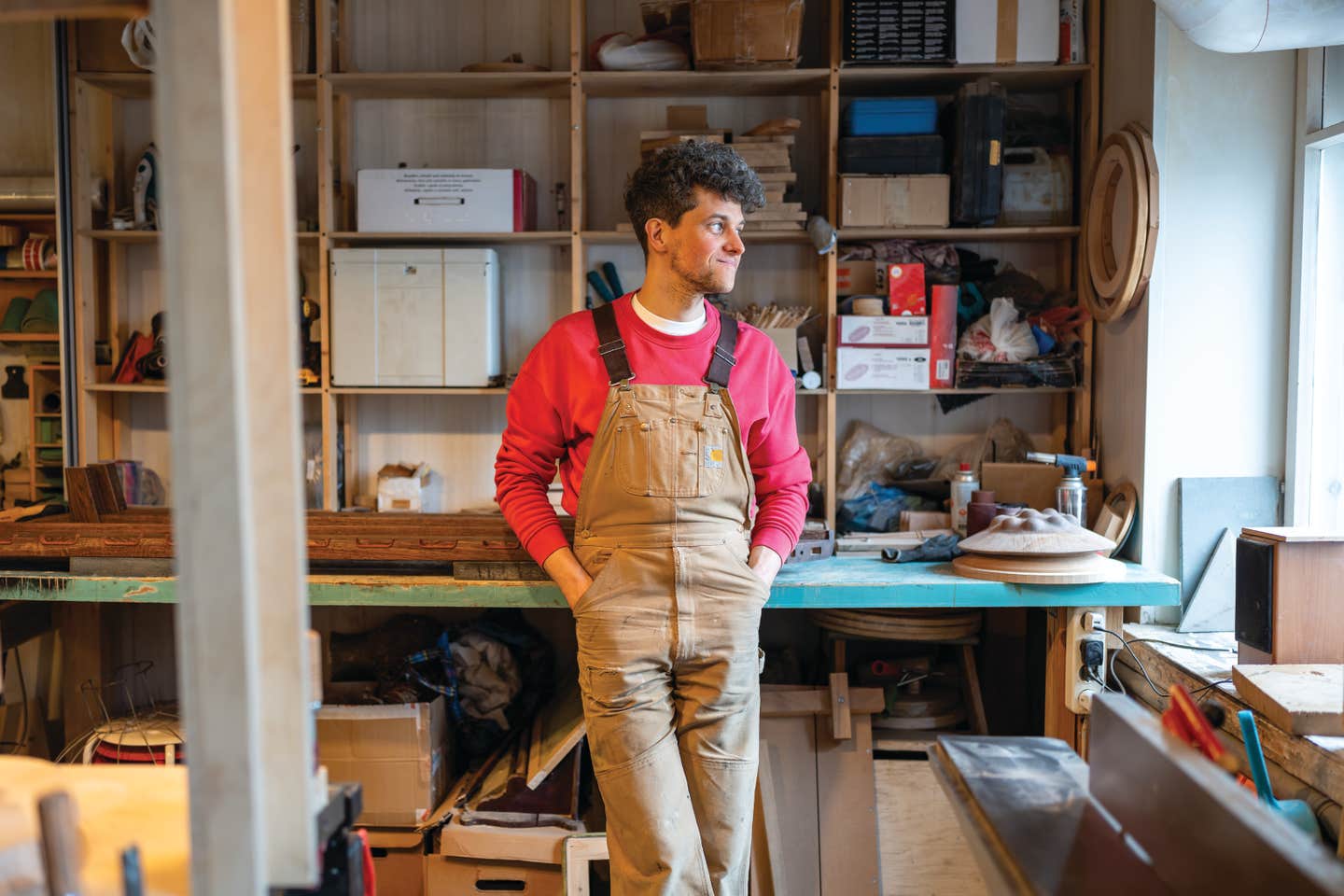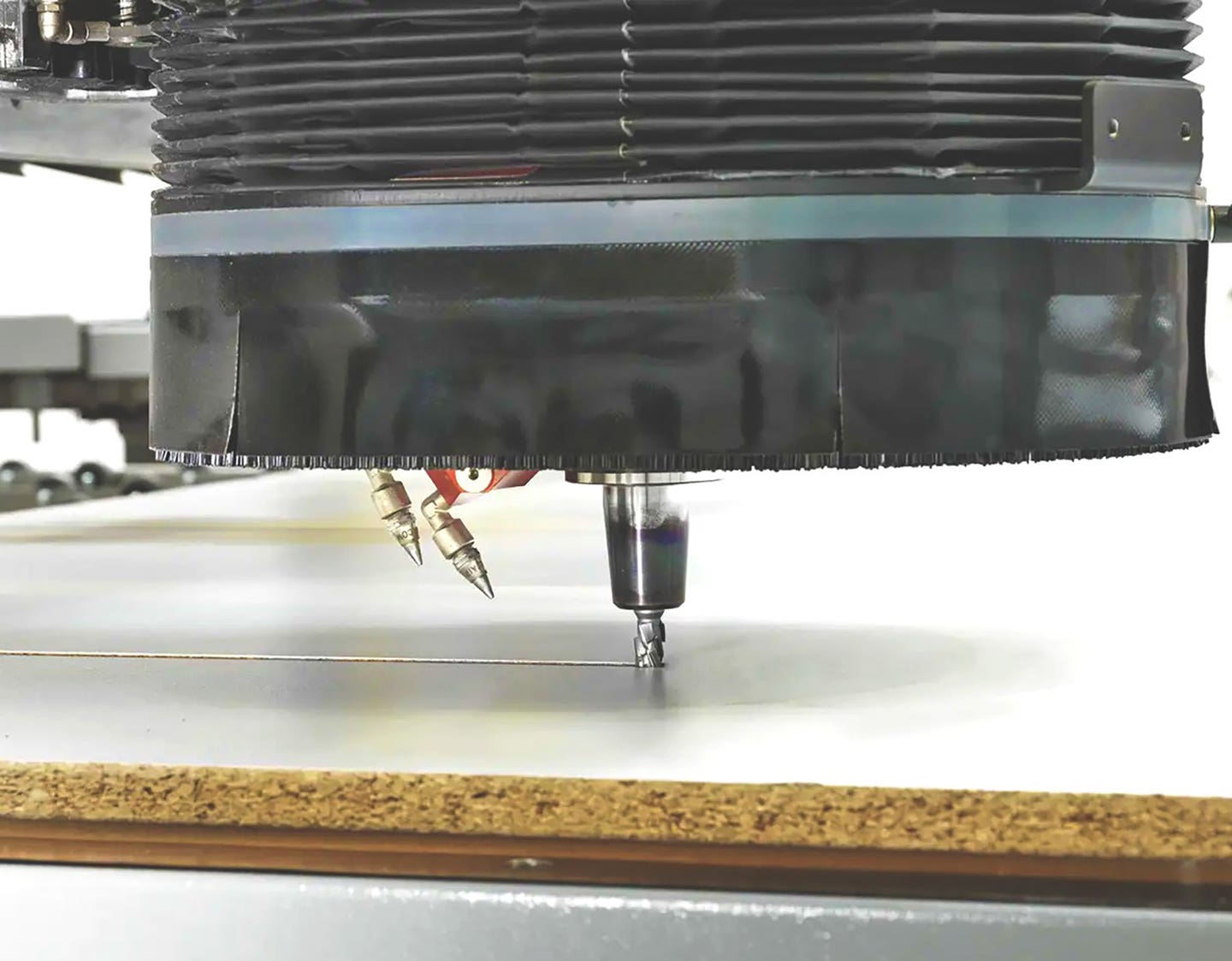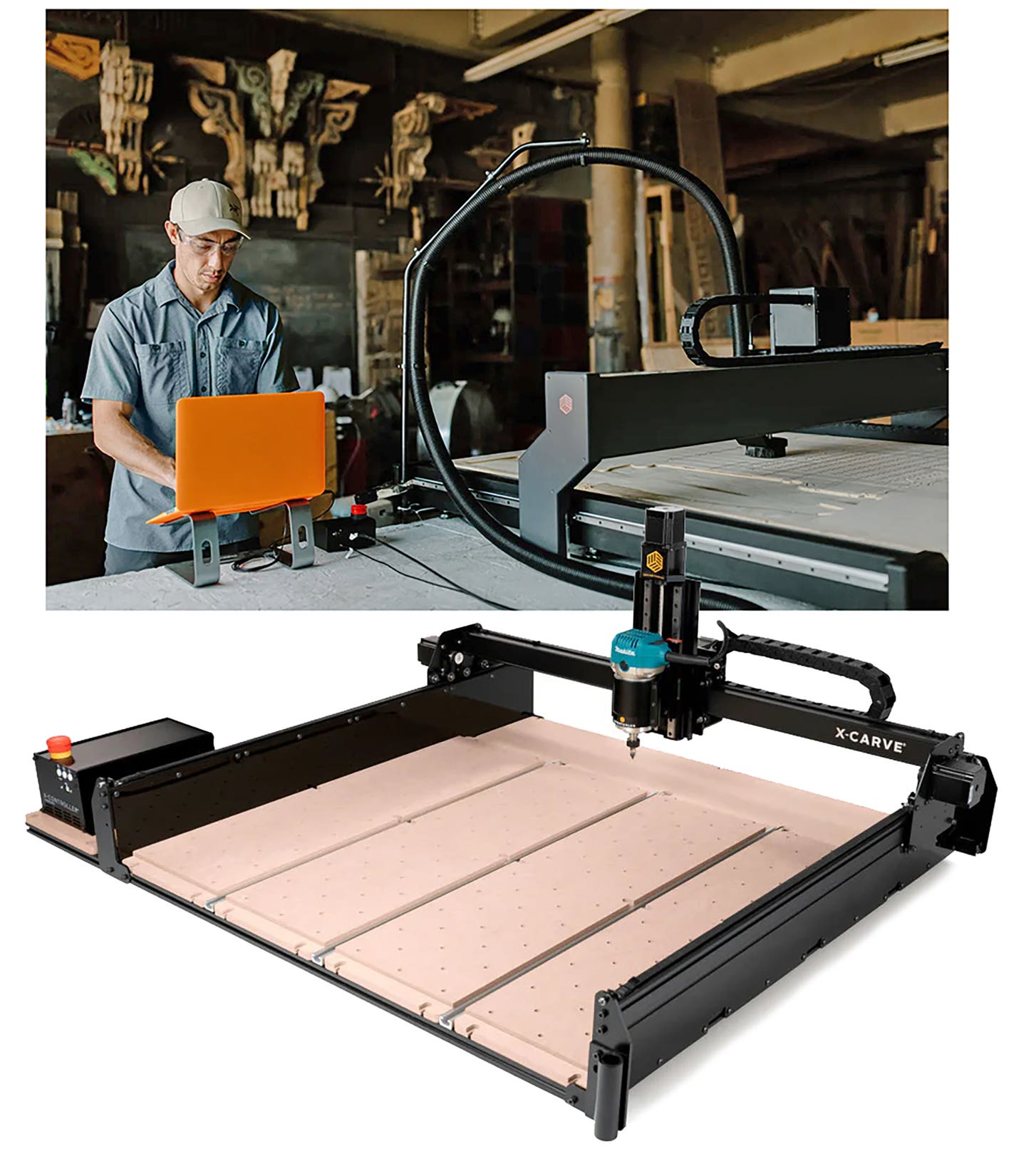The PSU Pipeline
Pittsburg State University’s Wood Technology Department is addressing the needs of the woodworking industry by preparing its students to be successful product and process engineers. With its diverse facility featuring…
Pittsburg State University's Wood Technology Department is addressing the needs of the woodworking industry by preparing its students to be successful product and process engineers.
With its diverse facility featuring a traditional woodworking shop and state-of-the-art CNC machining center, the department boasts a job placement record of nearly 100 percent over the last decade. And the business of educating tomorrow's woodworkers figures to only get better.
"Right now, the need for wood technology majors greatly exceeds the supply," says John Iley, chairman of the Kansas school's Department of Technology Studies. "The wood industry is looking for people who understand current manufacturing processes, business practices, etc. , We're trying to meet that need."
The department has competed in numerous international design competitions since 1998, with impressive results. But the emphasis of the program is not design. It is to teach students the production aspect — getting from paper to the finished product.
"We're not turning out the designers for the wood industry," says Iley. "We're turning out people who understand CAD, CAM, production control — that's where there's a void." About 95 percent of the wood technology students at PSU are enrolled in the four-year program; the others are in the two-year associate of applied science program, which covers shop floor and business fundamentals.
All the elements
When prioritizing in the woodworking manufacturing industry, everything starts with economics. In order to produce a product economically, you have to mass produce it, and to do that, you have to know how to select the right tools and the right equipment, the right materials and employees for the job. PSU's program curriculum covers all of those elements.
Students will learn engineering technology, theory, logic, and leadership and business skills to make them more versatile. Wood science is the first stop. Here, students study wood anatomy, paying particular attention to wood and moisture relationships.
Courses that follow cover wood processing, machine woodworking, production techniques, construction methods and materials, finishing, facility maintenance and management, furniture manufacturing, and millwork and casework. Students are trained to use AutoCAD, Cabinet Vision SOLID, Chief Architect, Microvellum and MasterCAM software. After two years of study, students are required to take a 10-week internship, earning pay and college credit.
"Companies from all over the U.S. want students — not only graduates, but interns," says associate professor David Miles. "It's a win-win situation for both parties. The company gets to try out employees and the students get to try out the company. More often than not, the companies will offer that intern a position after graduation."
Feeding the shops
Most PSU graduates take jobs in the architectural millwork field. Many start out as assistant project managers or as project and design engineers at smaller companies. The school has become an employee pipeline to several commercial millwork shops within a three-hour drive of the campus — an area that includes the cities of Tulsa, Okla., and Wichita, Kan.
Doug Hague, an adjunct instructor in the Wood Technology Department, graduated from PSU in 2003 and went to work as a manager at a high-end architectural millwork shop for the next four years. Hague says the hands-on nature of PSU's program allowed him to grasp estimating — the key to becoming a manager. Knowing how long it takes to set up a planer and run the material, for example, enables him to accurately put a cost figure on the work. But being in charge isn't always what it's cracked up to be.
"Here I was at 23, in a position of engineer, and I would have to go tell a 35-year-old shop foreman how I wanted something done," says Hague. "Yes, there was some animosity there."
Students clearly go through the department with differing goals. But all agree that PSU is one of the top post-secondary wood manufacturing schools in the nation.
Third-year student Jordan Backs, 20, says the best part of his experience thus far was learning AutoCAD and aspects of running a business, which he hopes to do soon after he graduates.
Senior Daniel Goran, 23, who anticipates working in the architectural millwork sector, says he is impressed at how quickly his graduating colleagues land jobs.
Caleb Galemore, 22, originally wanted to work in furniture design and residential millwork, but says his instructors have opened his eyes to the many options in the field. He completed his internship at Brochsteins Inc. in Houston, an architectural millwork manufacturer, where he might seek employment after graduation.
"If you're serious about coming into the wood industry, you're not going to get a much better option than what's at PSU. You're going to learn everything there is to know from wood science to building your own furniture," says Galemore.
Carl Stout graduated the wood technology program in 1998 and says the personal instruction he experienced enabled him to achieve his goals. He's now president of Martin Woodworking Machines Corp. in Charlotte, N.C., and attended PSU after earning a degree in German language from the University of Missouri.
"I was in the first class that David Miles ever taught at Pitt State, machine woodworking," says Stout. "Over the course of my instruction, he taught me many skills that prepared me to go into the supply sector of our industry. After all, David knows practically every woodworking machinery manufacturer out there. It is this experience that helped to prepare me for my future in the woodworking machinery industry."
The facility
The Kansas Technical Center houses the automotive, engineering, and graphics and imaging departments and the wood technology facilities, which include a computer lab, classroom, 2,400-sq.-ft. shop, and finishing room.
The shop is well stocked with machinery, most of which has been donated. While the school has spent hundreds of thousands of dollars on equipment, the shop operates on an annual budget of $7,500, which Miles says is barely enough to cover consumables such as sandpaper and finishes. Companies such as C.R. Onsrud, Martin USA, TigerStop, Weinig, Timesavers, Mikron, JLT Clamps, Denray Machinery, FastCap, QuickScrews, Ritter Mfg., Hoffmann Machine Co. and 3M Abrasives have made donations, along with the producers of Microvellum, MasterCam and Cabinet Vision software.
Industry assistance comes from the IWF, Woodworking Machine Industry Association, Association of Home Furnishings Suppliers, Architectural Woodwork Institute and Woodworking Machine Manufacturers Association.
"We are very blessed with a tremendous amount of industry support. Our program wouldn't be what it was without the industry support," said Miles. "A number of companies have loaned machines for the brand recognition. Chances are, if the students get experience with a particular brand, they will likely recommend that brand to their future employer. We have lots of graduates making equipment purchasing decisions."
Expanding the pool
The Kansas Technical Center opened in 1903 as a manual training school and PSU grew around it. It's the largest academic dwelling in Kansas, which may or may not impress anyone outside the state. Miles admits the university's rather remote location hurts enrollment.
"You've got to be coming here to get here," says Miles. "But we feel that if we can get prospective students here, or we can get industry leaders here, once we show them what we have we've got them hooked. It really makes no difference whether they've got to drive three hours from Kansas City or not."
Most of the students come from Kansas, Missouri, Arkansas and Oklahoma. Fewer than 10 percent are from outside that core area. The department, which promotes the university at industry trade shows, has recently hired a recruiter to boost PSU's national profile.
"When we produce a graduate from this region, they go out and work and migrate back," says Iley. "We want to [attract students from] other wood industry areas — Texas, the Mid-Atlantic, the Northwest. The idea is to prepare students to go back to where they came from. The positive for PittState is it brings in tuition dollars from other states."
Twice, the Wood Technology Department has won the Educator of the Year Award bestowed by the Woodworking Machinery Industry Association. Bill Miller, WMIA executive vice president, says he's visited the school twice and that the instructors do a superb job in preparing their students for this industry.
"We've had some of their students work with us for different trade shows like IWF and AWFS, and these young people are just extraordinary," says Miller. "I think it has to do with the focus of the department and the dedication and the caring that they put into developing a student."
Contact: Pittsburg State University, Wood Technology Dept., 1701 S. Broadway, Pittsburg, KS 66762. Tel: 620-235-4942. www.pittstate.edu


